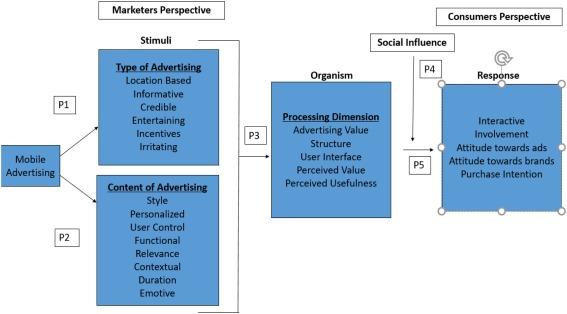Director of Educational Technology: Key Roles, Skills, and career Growth Strategies
Are you passionate about education and excited about the impact of technology on modern learning? If you’re aiming for a leadership role in schools, colleges, or universities, the position of Director of Educational Technology offers a rewarding career path. This role blends strategic vision, technical expertise, and educational insight to shape learning experiences for students and faculty alike.In this complete guide, we’ll explore the Director of Educational technology’s primary responsibilities, essential skills, required qualifications, and actionable strategies for advancing your career in education technology.
Understanding the Role: Director of Educational Technology
The Director of educational Technology typically serves as the chief architect for digital learning initiatives within an educational institution. Leveraging expertise in both pedagogy and technology,this professional drives the prosperous integration of EdTech solutions into curriculum,instruction,and operational workflows.
Key Responsibilities
- Strategic Planning: Develop and implement comprehensive technology plans that support institutional goals and improve teaching and learning outcomes.
- Technology Integration: Facilitate the adoption and effective use of educational technologies, such as Learning Management Systems (LMS), digital assessment tools, and collaborative platforms.
- Professional Development: Organize and deliver training programs that empower faculty and staff to utilize emerging technologies effectively.
- Budget and Resource Management: Oversee EdTech budgets, evaluate new products, negotiate with vendors, and manage technology-related purchases and subscriptions.
- Stakeholder Collaboration: Work closely with teachers, professors, administrators, and IT personnel to align technology initiatives with academic priorities.
- Policy Formulation: Establish and enforce technology usage policies, including data privacy, cybersecurity, and digital equity guidelines.
- Continuous Evaluation: Assess the impact of technology programs via data analysis, surveys, and usage metrics; adjust strategies to maximize educational benefit.
Essential Skills for Educational Technology Leadership
To excel as a Director of Educational Technology, mastering a blend of technical, pedagogical, and interpersonal skills is crucial:
Technical Proficiency
- Deep understanding of current educational technologies and software (LMS, e-learning platforms, adaptive learning tools)
- Competence in hardware management, network security, and cloud-based systems
- Ability to evaluate, implement, and troubleshoot emerging EdTech solutions
Educational insight
- Strong knowledge of instructional design principles
- Familiarity with curriculum development and assessment methodologies
- Awareness of pedagogical trends such as blended learning and flipped classrooms
Leadership and Management Skills
- Project management expertise, with capacity to lead multi-departmental initiatives
- talent for motivating and training diverse teams
- Strategic thinking and data-driven decision-making abilities
Communication and Interpersonal Abilities
- Exceptional presentation and facilitation skills
- Capacity to communicate technical concepts to non-specialists
- Negotiation and conflict resolution skills
Qualifications and Professional Experience
While individual schools, colleges, and universities may vary in their requirements, most seek candidates who possess:
- Education: master’s degree (or higher) in Educational Technology, Instructional Design, Details Technology, or related field
- Experience: Several years of relevant experience in instructional technology, IT management, or educational administration
- Certifications: Relevant credentials such as Certified Educational Technology Leader (CETL), Microsoft Innovative Educator, or Google Educator are advantageous
Benefits of Becoming a Director of Educational Technology
Pursuing a career as a Director of Educational Technology offers a range of personal and professional benefits:
Impactful Contribution
- Influence the learning experience of thousands of students and educators
- Champion digital equity and educational innovation in your institution
Career Advancement
- Position yourself for upward mobility within educational leadership (e.g., chief Information Officer, Academic Dean)
- Gain visibility for best practice initiatives and institutional transformation
Competitive Compensation
- Earn a salary commensurate with executive leadership roles in education
- Access professional development funds and technology conference opportunities
Strategies for Career Growth in Educational Technology Leadership
To land a Director of Educational Technology position and succeed, consider these practical growth strategies:
1. Build a Robust Professional Network
- Connect with EdTech professionals via associations, conferences, and online communities
- Engage with thought leaders, share industry news, and collaborate on innovative projects
2. Stay Current with Emerging Technologies
- Subscribe to industry publications and EdTech blogs
- Participate in professional webinars, online courses, and certification programs
3. Pursue Leadership Opportunities
- Volunteer for committees or special projects related to technology integration
- Mentor junior staff or help lead professional development workshops
4. Develop Skills in Change Management
- Study best practices for leading technology change in educational environments
- Read case studies on successful EdTech initiatives
5.Showcase measurable Outcomes
- Track and report improvements in teaching and learning attributable to technology initiatives
- Present results through data visualization, reports, and presentations during key meetings
Tips for Acing the Director of Educational Technology Job Search
- Customize Your Resume and Cover Letter: Highlight relevant experience, leadership roles, and achievements in technology integration.
- Prepare for Behavioral Interviews: Practice discussing your approach to managing teams and driving educational change.
- Showcase Technical Savvy: Demonstrate your proficiency with EdTech tools and platforms during interviews and assessments.
- Emphasize Data Literacy: illustrate how you use data to make decisions and measure success.
- research the Institution: Tailor your request to the specific challenges and opportunities faced by the school, college, or university.
Conclusion: Pursue Excellence as a Director of educational Technology
The demand for qualified Directors of Educational Technology continues to rise as educational institutions strive to innovate and improve outcomes. By honing your skills, earning relevant credentials, and embracing continuous learning, you can become a high-impact leader in edtech. Whether you’re at a school,college,or university,this career offers the chance to leave a meaningful legacy by shaping the future of learning.Begin preparing today, and position yourself as a visionary leader ready to drive educational technology forward.

